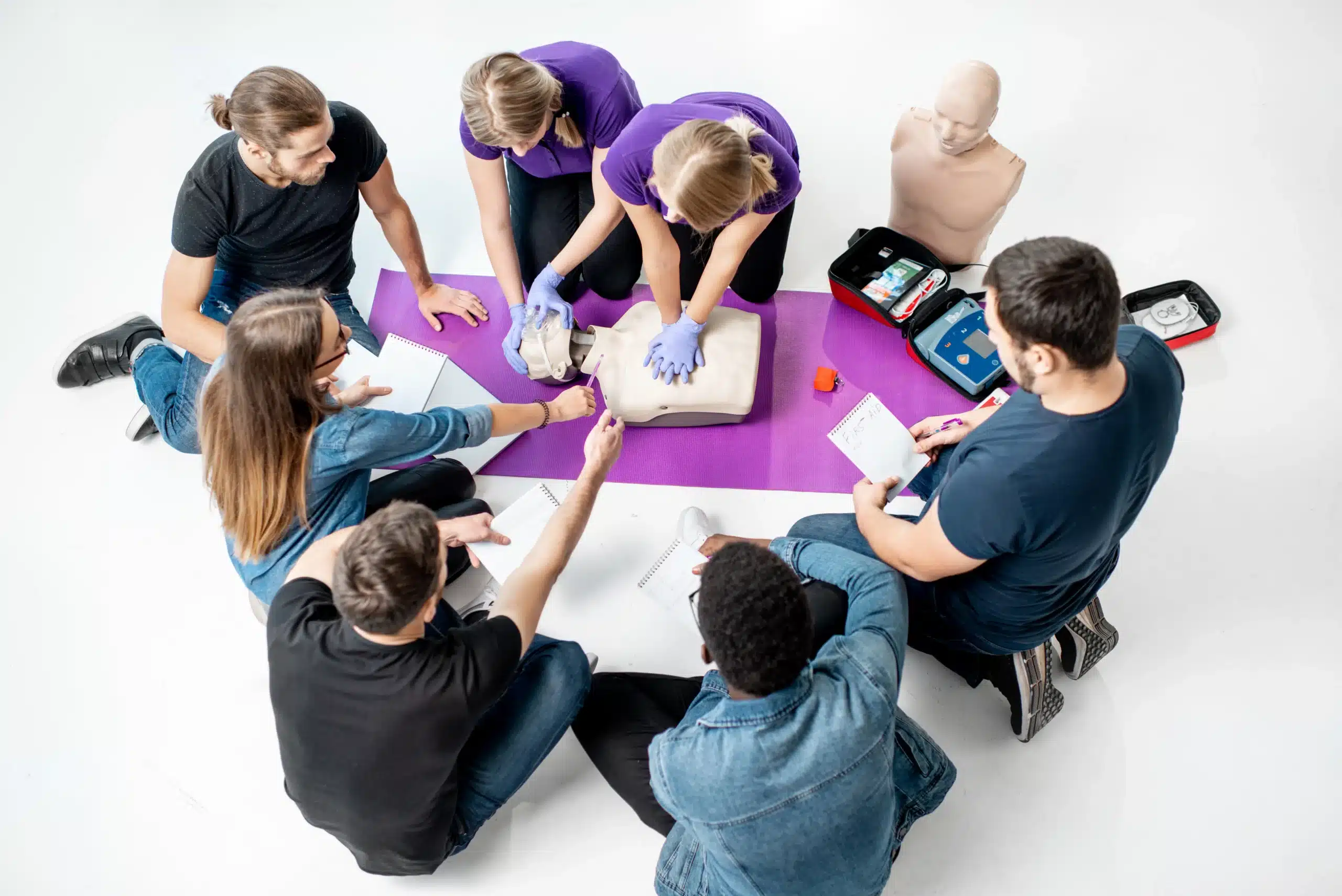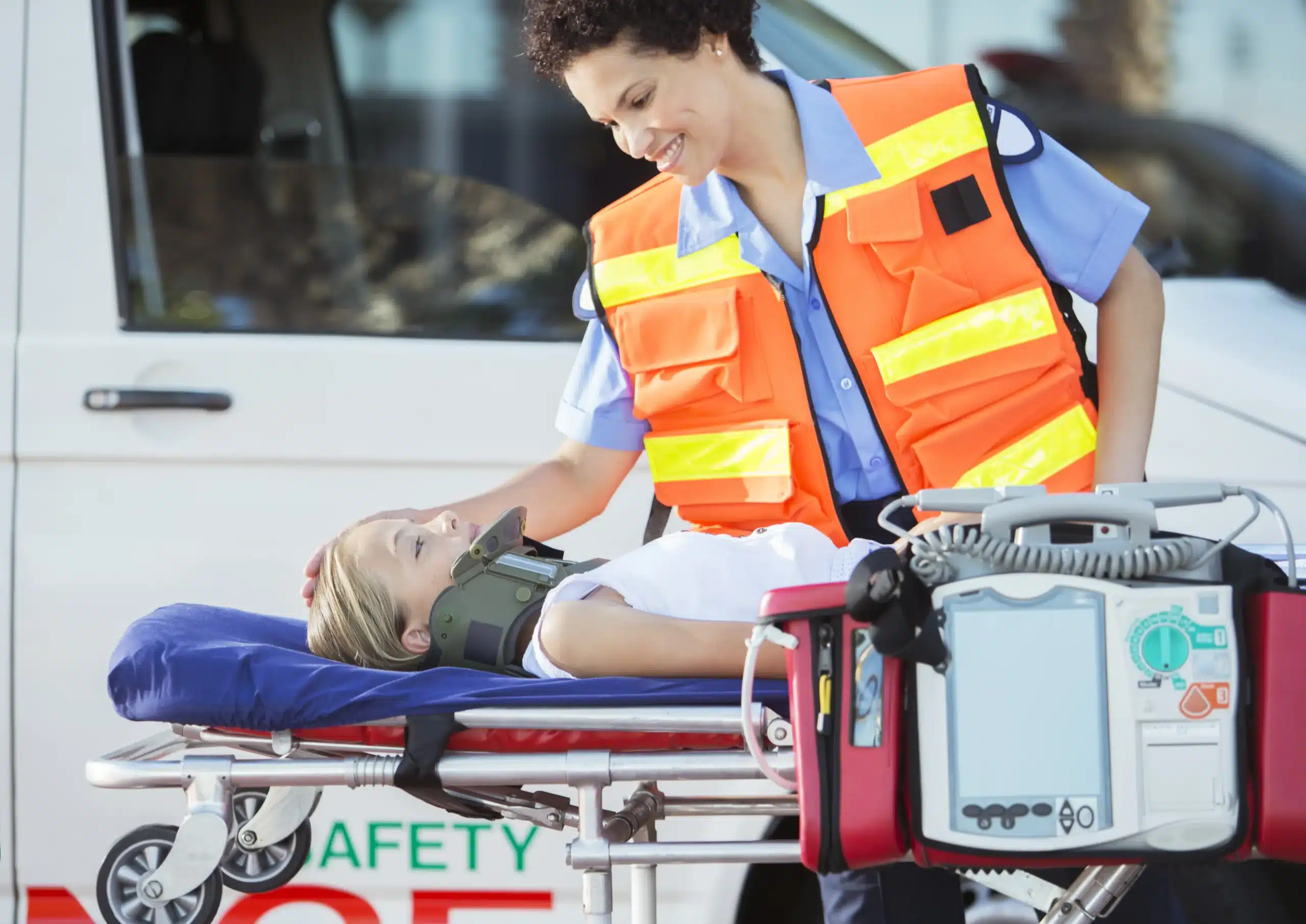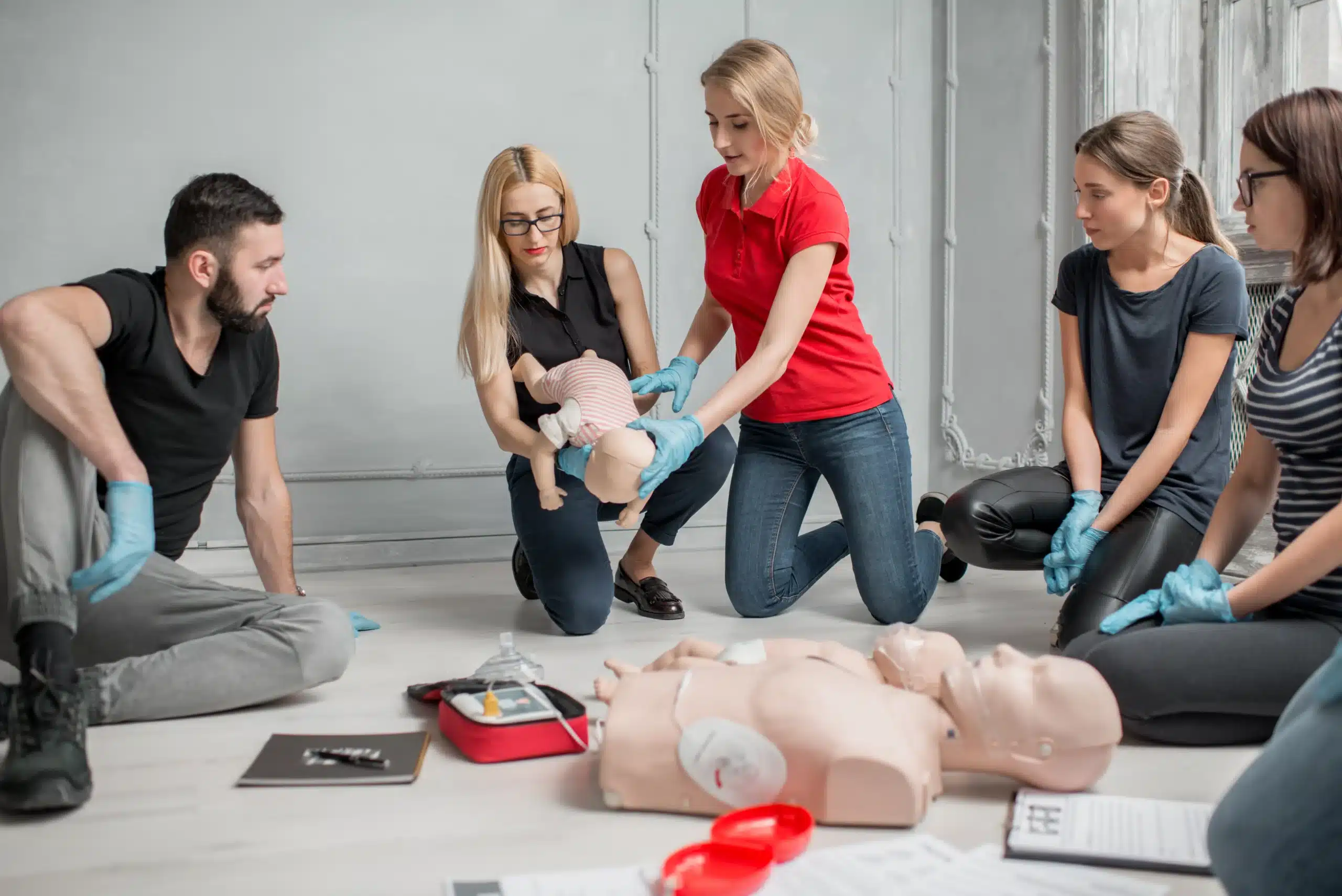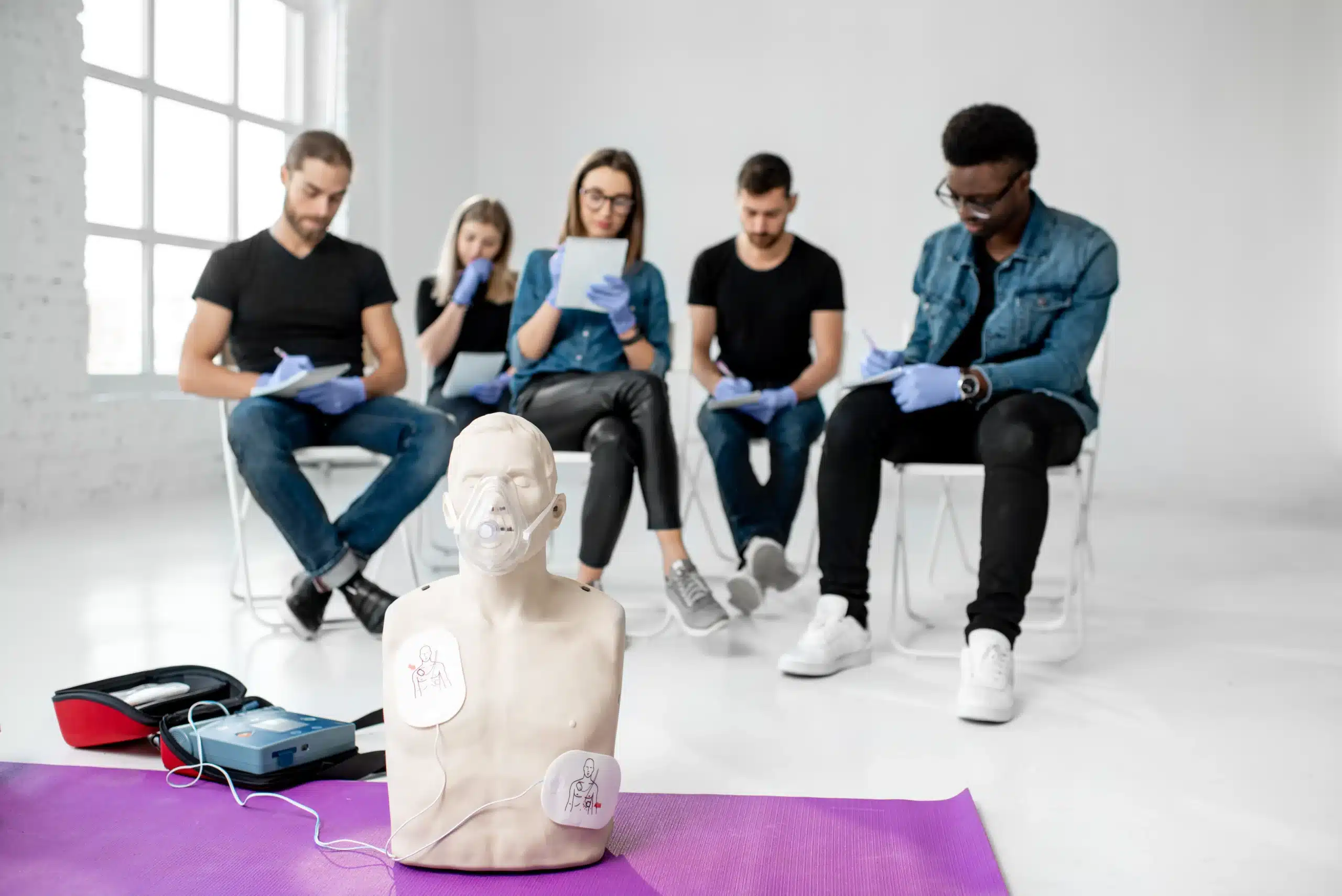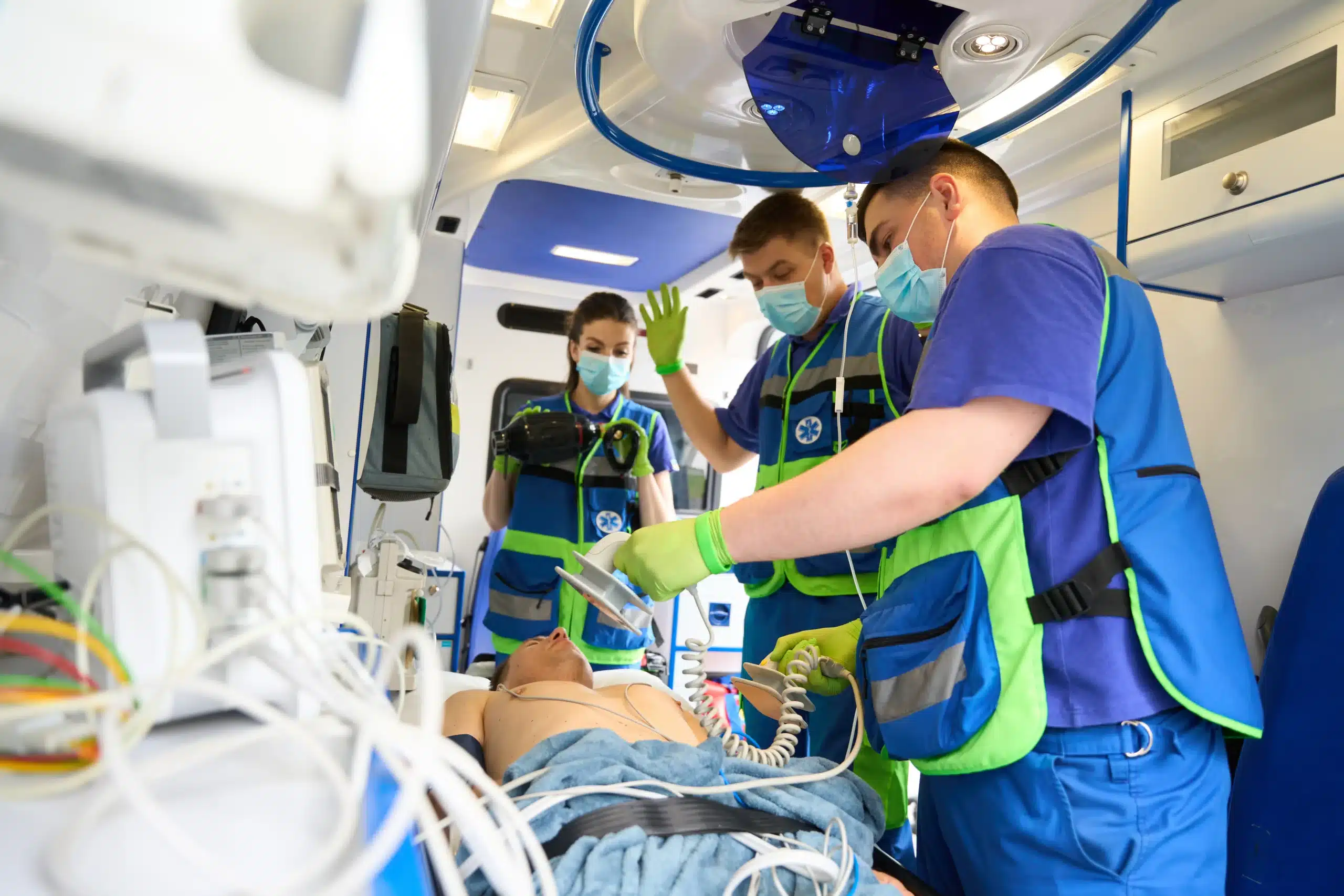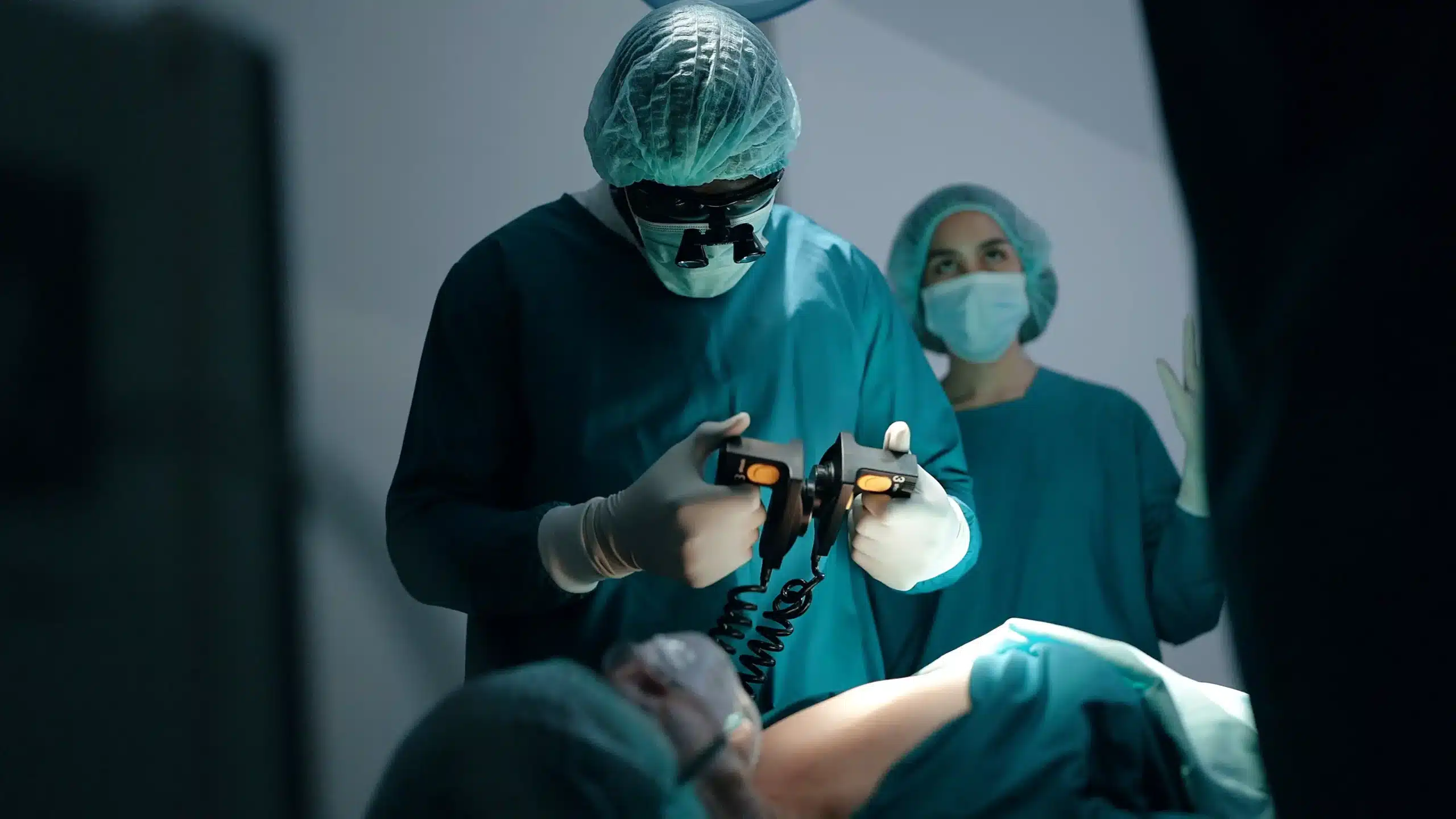Working with children means being prepared for anything, especially medical emergencies. Pediatric Advanced Life Support (PALS) certification gives healthcare professionals in Clovis the confidence and skills to handle critical situations involving infants and children. This comprehensive guide breaks down the essential aspects of PALS, from recognizing life-threatening conditions to mastering team dynamics during emergencies. We’ll explore the key training components, discuss where to find reputable PALS courses in Clovis, and explain how PALS certification can benefit your career. If you’re looking to enhance your pediatric emergency response skills and contribute to a higher standard of pediatric advanced life support in Clovis, this article is your starting point.
Key Takeaways
- PALS is essential for effective pediatric emergency care: This specialized training goes beyond basic life support, giving healthcare providers the confidence to handle life-threatening situations in infants and children. Choose a course with hands-on practice and up-to-date content.
- Finding the right PALS course requires careful consideration: Think about your learning preferences, the instructor’s expertise, course format, and practicalities like location and cost. Explore different providers, like Fresno CPR Classes, to find the best fit.
- Maintaining your PALS skills is crucial for ongoing competence: Keep track of renewal deadlines, seek out continuing education opportunities, and utilize available resources to stay sharp and prepared for any pediatric emergency.
What is PALS?
Definition and Purpose
Pediatric Advanced Life Support (PALS) is a specialized training program that teaches healthcare providers how to respond to life-threatening emergencies in infants and children. It focuses on the early recognition and management of critical conditions like respiratory distress, shock, and cardiac arrest. PALS certification covers a wide range of skills, from basic life support to advanced interventions. The goal is to give providers the knowledge and confidence to act quickly and effectively in these high-pressure situations. This training often involves a combination of lectures, demonstrations, and hands-on practice scenarios. Fresno CPR Classes offers a variety of courses to help healthcare professionals obtain their PALS certification.
Importance for Clovis Healthcare Providers
For healthcare providers in Clovis, PALS certification is essential. It ensures they possess the specialized training to provide the best possible care for young patients facing life-threatening illnesses or injuries. Given the unique physiological differences between children and adults, PALS training goes beyond basic CPR and first aid. It equips providers with the specific skills and algorithms needed to address pediatric emergencies effectively. This specialized knowledge is crucial for anyone working in pediatrics, emergency medicine, or critical care in Clovis, contributing to better patient outcomes and a higher standard of care within the community. You can learn more about the importance of PALS here. For those looking for training options, Heart Link CPR offers PALS courses designed to meet the needs of busy healthcare professionals.
Key PALS Training Components
PALS certification equips healthcare providers with the essential skills to manage pediatric emergencies. Here’s a closer look at the key training components:
Recognize Life-Threatening Conditions
This training emphasizes recognizing immediate threats to a child’s life. You’ll learn to quickly assess a child’s condition, identify signs of shock, and differentiate between various respiratory and cardiac emergencies. Accurate and prompt recognition is the first step toward effective intervention. Fresno CPR Classes provides comprehensive training in recognizing these critical conditions, giving you the confidence to act swiftly and decisively. For more details on our BLS certification, which is often a prerequisite for PALS, visit our BLS page.
Manage Respiratory Emergencies
Respiratory emergencies in children can escalate rapidly. PALS training equips you with practical skills to manage these situations effectively. You’ll learn techniques for airway management, oxygen administration, and assisted ventilation. This part of the training focuses on providing immediate respiratory support while preparing for advanced interventions. For more information on our PALS courses, contact us today.
Learn Pediatric Cardiac Arrest Protocols
PALS courses delve into the specific protocols for managing pediatric cardiac arrest. You’ll learn the systematic approach of PALS, including high-quality CPR, defibrillation, and medication administration. The training emphasizes the importance of coordinated teamwork during these critical events. Our low price guarantee ensures you receive this crucial training affordably.
Master Team Dynamics and Communication
Effective teamwork and clear communication are paramount in emergency situations. PALS training emphasizes the importance of coordinated efforts, clear role assignment, and closed-loop communication among team members. You’ll practice these skills in simulated scenarios to build confidence and improve your ability to function effectively within a team. Consider signing up for one of our discount group classes to practice these skills with your colleagues.
Provide Post-Resuscitation Care
Post-resuscitation care is a critical, often overlooked, aspect of PALS training. This component focuses on stabilizing the child after successful resuscitation and managing potential complications. You’ll learn strategies for optimizing ventilation, maintaining circulation, and providing ongoing support. This comprehensive approach ensures the best possible outcome for the child. Learn more about PALS by visiting the American Heart Association website.
PALS Training Providers in Clovis
Finding the right Pediatric Advanced Life Support (PALS) course is crucial for healthcare providers working with children. Fortunately, Clovis has several reputable training centers offering high-quality PALS certification. Here are a few options:
Fresno CPR Classes
Fresno CPR Classes offers PALS certification aligned with American Heart Association standards, ensuring comprehensive training and a recognized certification. Known for their excellent customer service, they offer courses in over 60 cities, making scheduling convenient. Check their website for course dates and availability in Clovis. Fresno CPR Classes also provides a low price guarantee, giving you confidence you’re getting a good value. They also offer other valuable courses like RQI classes and group discounts.
Central Valley Medical Education
Central Valley Medical Education provides initial and renewal PALS certifications, making them a good option whether you’re new to PALS or recertifying. They focus on preparing healthcare professionals for pediatric emergencies, covering a comprehensive range of AHA-approved content.
Clovis CPR Classes
Clovis CPR Classes specializes in AHA-certified courses, including PALS. Catering to both healthcare professionals and the general public, they offer a versatile option for anyone wanting to improve their pediatric emergency response skills. If you’re looking for local training specifically within Clovis, this provider is worth exploring.
American Heart Association Training Centers
The American Heart Association offers PALS courses through various training centers, some located in Clovis. AHA courses are known for their rigorous scientific backing and superior educational content, making them a trusted choice. You can search for AHA-authorized training centers on their website to find a convenient location. For any questions about these providers, don’t hesitate to contact us.
Course Formats and Prerequisites
Choosing the right PALS course format is the first step. Let’s break down the options and what you need to know before you register.
Explore Learning Options (In-Person, Online, Blended)
PALS courses are typically offered in a few different formats to fit your schedule and learning style. In-person classes provide hands-on training and direct interaction with instructors. These are a great option if you thrive in a traditional classroom setting and value face-to-face learning. For busy professionals, online or blended learning (a mix of online and in-person) might be more convenient. HeartCode Complete courses offer a flexible way to complete the cognitive portion of the training online, then schedule a separate hands-on skills session.
Get BLS Certified
Before you can take PALS, you’ll need a current Basic Life Support (BLS) certification. This is because PALS builds upon the foundational skills taught in BLS, such as CPR and basic airway management. Make sure your BLS certification is from a recognized organization like the American Heart Association and is up-to-date before enrolling in a PALS course. You can find more information about BLS certification on the Fresno CPR Classes blog.
Understand Professional Healthcare Experience Expectations
PALS is designed for healthcare providers responsible for the emergency care of infants and children. This includes professionals like nurses, doctors, paramedics, EMTs, respiratory therapists, and other healthcare professionals. While prior pediatric experience isn’t strictly required, having some familiarity with pediatric care can be beneficial. If you’re a student in a healthcare field, PALS certification can give you a valuable advantage and demonstrate your commitment to providing high-quality patient care. Contact us if you have questions about whether PALS is right for you.
What to Expect During PALS Training
PALS training is a comprehensive learning experience. Here’s a glimpse of what you can expect:
Learn the Theory
PALS courses cover the systematic approach to pediatric assessment, resuscitation, and stabilization. You’ll learn to recognize and respond to life-threatening conditions in infants and children. The curriculum is designed for healthcare providers working in emergency response, emergency medicine, intensive care, and critical care units. Fresno CPR Classes offers PALS training for healthcare professionals who need this specialized knowledge.
Practice with Hands-On Simulations
PALS training isn’t just about textbooks and lectures. The course emphasizes hands-on learning through realistic simulations. These scenarios allow you to apply your knowledge in a safe, controlled environment. You’ll practice essential skills like airway management, intravenous access, and medication administration. This practical experience builds confidence and competence in managing pediatric emergencies.
Understand Assessment and Certification
Successful completion of the PALS course requires passing a written exam and demonstrating proficiency in practical skills. You’ll need to achieve a score of at least 84% on the test to receive your PALS Certification, which is valid for two years. It’s important to note that proficiency in pediatric basic life support (BLS) skills is a prerequisite. Consider taking a BLS course before enrolling in PALS.
Overcome Common Challenges
One common challenge is balancing the demands of a busy work schedule with the time commitment required for training. Fresno CPR Classes offers various course schedules and formats to accommodate different needs. Contact us to discuss options that work for you. Another challenge is mastering the complex algorithms and protocols involved in pediatric advanced life support. Our instructors provide comprehensive guidance and support to help you build a strong foundation in these essential skills. Focusing on key areas like airway management, chest compressions, medication dosages, team communication, and continuous reassessment will help you succeed in the course and improve your ability to provide effective care during pediatric emergencies.
Cost and Finances
Let’s be honest, cost is a factor when choosing any professional development course. Understanding PALS course pricing and exploring available financial assistance options can help you find a program that fits your budget.
Understand PALS Course Costs
PALS course costs vary depending on the training provider, the format (online, blended, or in-person), and what’s included. An online PALS course, including online modules, skills testing, and your certification card, typically runs around $240. In-person training may have a different price structure. CPR courses in general can range from $40 to $100, depending on the certification level (BLS, ACLS, PALS, etc.) and the specific training center. For more detailed information on CPR course costs, visit our CPR course pricing page.
Find Discounts and Offers
Many training providers, including Fresno CPR Classes, offer discounts for group enrollments. If you’re training with colleagues or as part of a larger organization, it’s worth checking if this option is available, as it can significantly lower the per-person cost. Also, keep an eye out for promotional offers. Sometimes providers will offer discounts if you use a specific promo code when you register.
Explore Payment Options and Financial Assistance
At Fresno CPR Classes, we believe that life-saving skills should be accessible to everyone. We offer a low-price guarantee and flexible payment options to help make our courses more affordable. We also understand that schedules can be tricky, so we offer a range of class times to accommodate various work and personal commitments. Reach out through our contact page to discuss your specific financial situation and explore available options.
Benefits of PALS Certification
Getting your PALS certification is a significant step, so you naturally want to make sure it’s worth the investment. Here’s a breakdown of the key benefits:
Enhance Patient Care
PALS certification equips you with the skills to confidently assess and address life-threatening situations in infants and children. You’ll learn to recognize and treat emergencies like shock, respiratory distress, and cardiac arrest. The PALS course emphasizes critical thinking and problem-solving, empowering you to make quick, informed decisions in critical moments. Plus, it hones your teamwork skills, crucial for effective communication and coordination during pediatric emergencies. Ultimately, this translates to better patient outcomes and a higher standard of care.
Advance Your Career
In the healthcare field, PALS certification is a valuable asset. It demonstrates your commitment to providing specialized pediatric care and enhances your professional qualifications. Many employers require PALS certification for roles involving pediatric care, opening doors to new opportunities and career advancement. Whether you’re a nurse, paramedic, or physician, PALS can significantly boost your resume and make you a more competitive candidate. It shows potential employers you have the specialized training and skills to handle pediatric emergencies effectively.
Meet Healthcare Facility Requirements
Many healthcare facilities require PALS certification for healthcare providers working with children. This ensures staff members meet specific standards for pediatric emergency care. By obtaining your PALS certification through a program like the American Heart Association’s RQI, you’ll meet these requirements and be prepared to contribute effectively to your team. Fresno CPR Classes offers these convenient RQI classes as a modern and efficient way to get your official PALS certification.
Registration and Scheduling
Getting signed up for your PALS course is straightforward. Here’s what you need to know about registration and scheduling:
Register Online
Fresno CPR Classes offers a streamlined online registration process for all its courses, including PALS. You can find course dates, times, and pricing directly on the Fresno CPR Classes website. CPR class prices typically range from $40 to $100, depending on the type of certification (BLS, ACLS, PALS, etc.), the class format (in-person, blended, or online), and the training center. For more on pricing and what impacts it, check out this guide to Fresno CPR classes. Once you’ve found a PALS course that fits your schedule, simply follow the prompts to register and secure your spot.
Check Course Availability
Fresno CPR Classes understands that healthcare professionals have busy schedules. To accommodate this, they offer daily PALS classes in over 60 cities and maintain a low-price guarantee. You can easily check course availability and find a time that works for you on their website. They also offer convenient skills testing sessions, available Monday through Saturday from 7 am to 7 pm. For more details on their class schedules and commitment to accessibility, take a look at this helpful resource. If you have any questions or need assistance with scheduling, don’t hesitate to contact their team—their customer service team is known for its responsiveness and helpfulness. They also offer group discounts, so if you’re registering with colleagues, be sure to inquire about potential savings.
Maintain Your PALS Certification
Once you’ve earned your PALS certification, staying current is key. Knowing the renewal process and available resources will make maintaining your skills easier.
Understand Renewal Requirements
PALS certification is typically valid for two years. To stay certified, you’ll need to complete a PALS renewal course before your current certification expires. This ensures you’re up-to-date on the latest guidelines and best practices for pediatric emergency care. Keep track of your expiration date and plan to recertify in advance. Staying organized will prevent any last-minute scrambling.
Explore Continuing Education
Even if your certification isn’t due for renewal yet, ongoing learning is essential in healthcare. Look for continuing education opportunities related to pediatric advanced life support. Many CPR training providers offer convenient options like blended learning, which combines online coursework with in-person skills sessions. This flexible format helps you fit continuing education into your busy schedule. You’ll also reinforce your existing knowledge and pick up new techniques.
Find Additional Resources
Fresno CPR Classes offers various American Heart Association certification courses, including PALS, BLS, ACLS, and First Aid. These courses provide the skills and knowledge needed to handle pediatric emergencies effectively. Take advantage of local resources and training centers to supplement your PALS certification and expand your skill set. Staying informed and proactive about your training will ensure you’re always prepared to provide the best possible care. Consider exploring additional certifications to broaden your expertise and enhance your career prospects.
Choose the Right PALS Course in Clovis
Consider Key Factors When Choosing a Provider
Finding the right Pediatric Advanced Life Support (PALS) course in Clovis means looking at more than just the schedule. Think about the learning environment. Do you prefer smaller classes with more individual attention, or are you comfortable in a larger group? Consider the instructor’s experience and teaching style. An engaging instructor can make a big difference in how well you learn.
Also, check if the provider offers continuing education or refresher courses. Your certification is valid for two years, so ongoing support is helpful. Fresno CPR Classes, for example, emphasizes excellent customer service (Fresno CPR Classes). Finally, consider practicalities like location and parking. A convenient location reduces stress.
Compare Courses and Features
Once you’ve narrowed down your options, compare the specifics of each PALS course. Does the curriculum follow the latest American Heart Association guidelines? Hands-on practice is essential, so check how much simulation training is included. Some providers, like Fresno CPR Classes, offer a low-price guarantee (Low Price Guarantee).
If you’re a healthcare professional, ask about group discounts or specialized courses. Fresno CPR Classes offers group discounts (Discount Group Classes). Consider the course format, too. Do you prefer a classroom setting, blended learning, or an online option? Fresno CPR Classes offers a variety of formats. Their online RQI classes provide flexibility (RQI Classes). For any questions, contact the provider directly. Fresno CPR Classes has a contact page (Contact Us). Choosing the right PALS course is an investment in your skills and confidence in responding to pediatric emergencies.
Related Articles
- Online PALS Classes in Clovis: Your Guide – Fresno CPR Classes
- PALS HeartCode in Madera: Flexible Training Options – Fresno CPR Classes
- AHA PALS Classes in Fresno, CA – Fresno CPR Classes
- BLS for Healthcare Providers in Clovis: Your Guide – Fresno CPR Classes
- Pediatric CPR & First-Aid Training in Madera – Fresno CPR Classes
Frequently Asked Questions
Why is PALS certification important, especially in Clovis?
PALS certification is crucial for healthcare providers in Clovis because it equips them with the specialized skills and knowledge to effectively manage life-threatening emergencies in infants and children. It goes beyond basic life support training, addressing the unique physiological differences between children and adults. This specialized training contributes to better patient outcomes and a higher standard of care within the Clovis healthcare community.
What are the key components covered in PALS training?
PALS training covers a range of essential skills, including recognizing life-threatening conditions, managing respiratory and cardiac emergencies, mastering team dynamics and communication, and providing post-resuscitation care. The training emphasizes a systematic approach to pediatric assessment, resuscitation, and stabilization, using realistic simulations to build confidence and competence.
How do I choose the right PALS course format and provider?
Consider your learning style and schedule when choosing a PALS course format (in-person, online, or blended). When selecting a provider, look at factors like class size, instructor experience, continuing education opportunities, location, and cost. Compare course features, ensuring the curriculum aligns with the latest American Heart Association guidelines and includes ample hands-on practice.
What are the costs associated with PALS certification, and is financial assistance available?
PALS course costs vary depending on the provider, format, and included materials. Look for potential discounts, such as group enrollment rates or promotional offers. Some providers may offer flexible payment options or financial assistance. Contact the provider directly to discuss your specific financial situation and explore available options.
How do I maintain my PALS certification after completing the course?
PALS certification is typically valid for two years. To maintain your certification, complete a PALS renewal course before your current certification expires. Engage in continuing education opportunities related to pediatric advanced life support to stay up-to-date on the latest guidelines and best practices. Utilize additional resources and training to reinforce your skills and expand your expertise.
